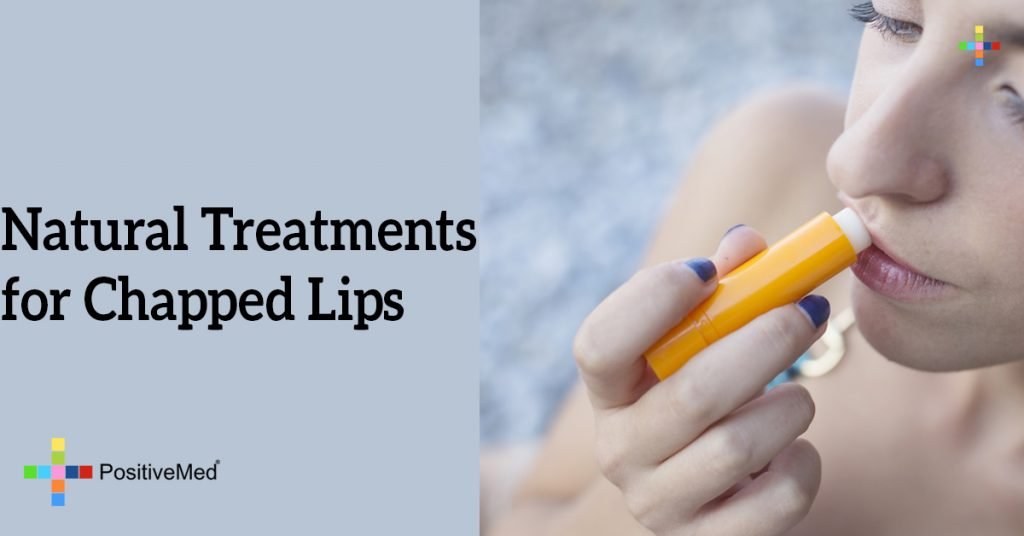
Natural Treatments for Chapped Lips
By: Khrystyana Kirton
Edited by Stephanie Dawson
Reviewed by Nima Shei MD
Cracked and chapped lips are usually a result of dryness. The skin of the lips may also peel off in some cases. When the lips become too dry, tiny tears can appear on the surface, this can lead to bleeding and considerable discomfort. Chapped lips are rarely a serious problem and mainly develop during the cold winter months due to wind exposure or sunburn. Those who have a habit of constantly licking the lips may also develop chapped lips. Breathing through the mouth can cause your lips to become dry. In some cases, certain mild health conditions such as a common cold, nutritional deficiencies, allergies, and dehydration may cause the lips to become dry and cracked.
It’s easy to care for chapped and dry lips and there is a lot you can do to reduce the severity of the problem such as increasing water intake, avoiding cold or sun exposure, and using simple home remedies. Under the rarest of circumstances, cracked, chapped and dry lips may require medical care. This mainly occurs when the body is severely dehydrated. If the condition is accompanied by other symptoms such as confusion, cold skin and lethargy, it would be a good idea to seek medical attention.

The lips are so prone to chapping and dryness because the skin is very thin and does not have any protective hair growth. There are also no sweat or oil glands present beneath the surface, therefore the lips are stripped of moisture much faster than other areas of the body. The common signs and symptoms of chapped lips include:
- Dryness
- Redness
- Pain or tenderness
- Rough skin
- Bleeding
- Peeling and flaking
- Oversensitivity
The causes of chapped, cracked or dry lips include:
- Overexposure to cold or windy conditions
- Overexposure to the sun
- Allergies to cosmetic products
- Infections
- Drugs
- Dehydration
- Kawasaki disease/Sjogren’s syndrome
- Riboflavin/Vitamin A, B, or C deficiency
- Frequent use of soaps and other chemicals
- Smoking
When the lips are chapped or dry do not attempt to lick them, this will make them feel better only for short time. Once the saliva evaporates, the condition will worsen. Sometimes, dry lips or frequent licking of them could be a problem due to ill-fitting dentures. In such a case, one should consult their dentist. In severe cases, where there is excessive cracking, dryness and redness, one can use a medicated lip balm. It is best to avoid using flavored chap sticks and balms as this could induce frequent licking. One can also protect the lips from sun exposure and cold, dry winds by covering the mouth with a scarf when going outdoors.
Some important tips to care for chapped lips and prevent the condition from worsening are below. Keep in mind that most of these home remedies are not subjected to rigorous scientific studies and they can vary greatly in their effectiveness:
- Drink plenty of water daily
- Apply sunscreen to the lips outdoors, to protect from sun damage
- Apply a good lip balm which contains beneficial ingredients that help to moisturize and nourish the lips. Ensure that the lip balm also contains sunscreen.
- Refrain from licking the lips often, as this can aggravate dryness
- If prone to dry skin and lips, it is a good idea to use a humidifier to add moisture to the air
- Protect the lips with a scarf when there are harsh winds
- Sometimes the lips may become dry and chapped due to the ingredients present in toothpaste. Try changing toothpaste brands to alleviate the problem.
- Avoid using lipsticks and other lip cosmetics which contain strong chemicals. Always buy such products from reputed brands and check their expiration date.
- Warm water helps to relieve dryness and also improves blood flow in the lips.
- Take some warm water in a bowl and soak a clean washcloth in it. Squeeze out the excess water and place the cloth against your lips until it cools down. Repeat this 3 to 4 times until the lips become softer and less rough.
- You can then gently rub the cloth against your lips a few times. This helps to get rid of dead and dry skin.
- Next, take dip a clean cloth in cool water and hold it against your lips for a few seconds. Then gently pat dry.
- Apply some petroleum jelly to the lips and allow it to remain for about 20 minutes. This helps to soften the lips and also forms a protective layer.
- Apply a thick coat of a moisturizing lip balm. Keep the lip balm with you at all times so that you can use whenever you feel your lips becoming chapped or dry.
- Coconut oil is one of the best home remedies for dry lips. Apply a small quantity of coconut oil to the lips frequently during the day. This must especially be done in cold weather.
- Take a slice of cucumber and gently rub it over the lips. This helps to soothe dry lips and relieves tenderness.
- Aloe vera is a highly beneficial natural remedy which is effective in treating a variety of skin problems. You can also use it to cure chapped lips. Extract the gel from aloe vera leaves and apply it to the lips daily. Aloe vera gel is also available in many drug stores today.
SOURCES
Chapped Lips, Nature’s Natural Healing – Top 5 Natural Remedies for Chapped Lips, Discovery Health – Why Your Are Lips Chapped, WebMD –





